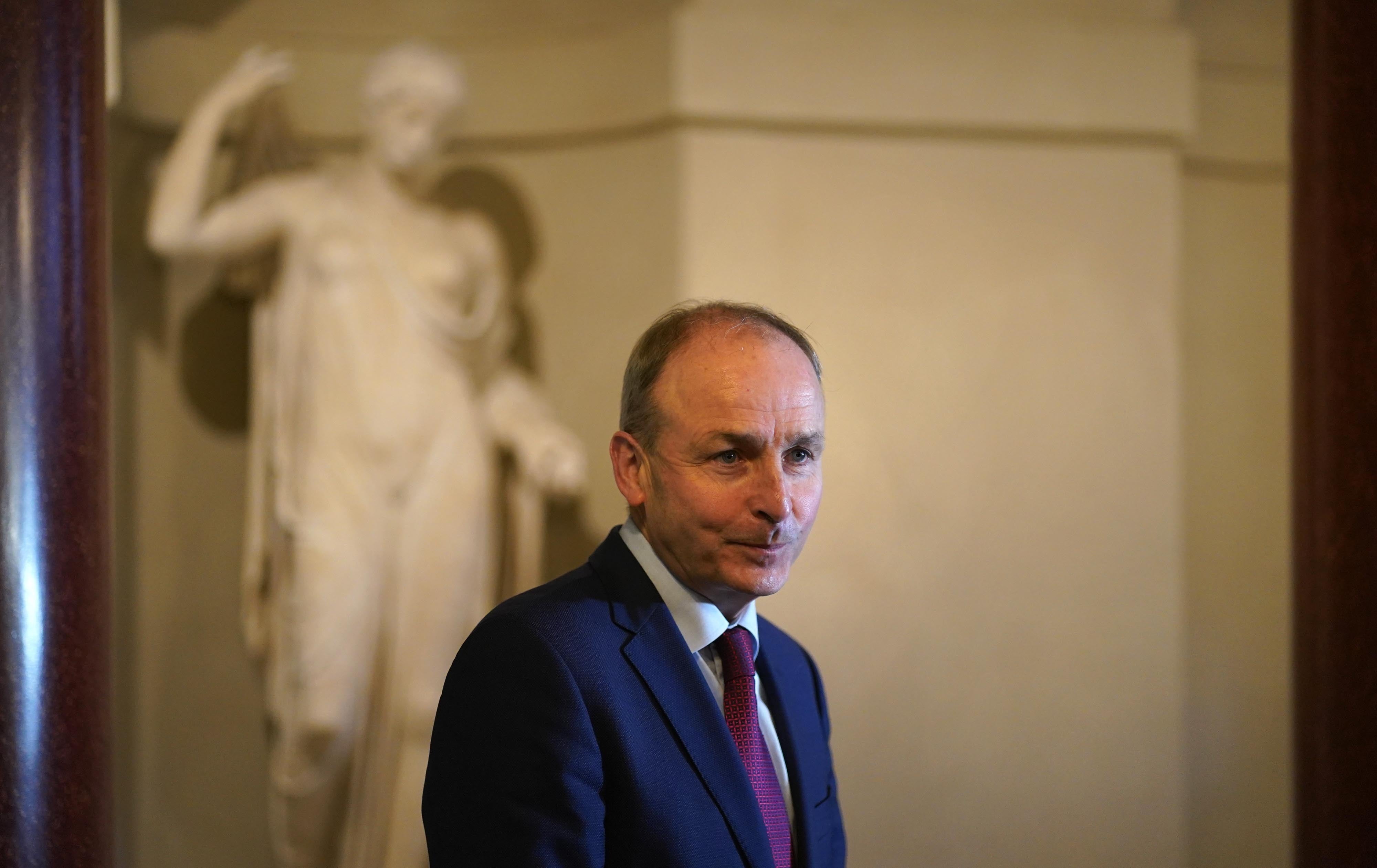Carbon tax revenue to fund cost of living measures, Taoiseach says
The Government is under pressure to tackle the soaring cost of living.

Your support helps us to tell the story
From reproductive rights to climate change to Big Tech, The Independent is on the ground when the story is developing. Whether it's investigating the financials of Elon Musk's pro-Trump PAC or producing our latest documentary, 'The A Word', which shines a light on the American women fighting for reproductive rights, we know how important it is to parse out the facts from the messaging.
At such a critical moment in US history, we need reporters on the ground. Your donation allows us to keep sending journalists to speak to both sides of the story.
The Independent is trusted by Americans across the entire political spectrum. And unlike many other quality news outlets, we choose not to lock Americans out of our reporting and analysis with paywalls. We believe quality journalism should be available to everyone, paid for by those who can afford it.
Your support makes all the difference.Measures to tackle the rising cost of living set to be announced this week will largely be funded by revenue from the carbon tax, the Taoiseach has said.
Micheal Martin has rejected calls to defer increases to the carbon tax due to be introduced in May, which will further drive up energy costs for consumers, saying Government must not give into “short-termism” in the face of the climate crisis.
The Government is under pressure to tackle the soaring cost of living with inflation rates hitting a 20-year high, with the Taoiseach admitting there have been “phenomenal” increases in energy prices.
Mr Martin said the Government wants to “cushion” people from the worst impacts, but said the picture for the rest of the year is uncertain, with economists divided on how the situation will unfold.
He said: “The energy increases have been phenomenal in terms of the price of gas internationally that is feeding into our system now.
“I think we have to be careful about speculating in terms of where inflation will go.
“I mean, it was 5.7% in December.
“It came down to 5% in January.
“So as I said earlier, economists are not definitive in respect of where this will go.
“And to a large extent, because of both the pandemic and the geopolitical situation in terms of energy supplies, one cannot be certain or definitive about the rest of the year.”
But he has ruled out deferring increases to the carbon tax on fuels, as called for by Sinn Fein which is set to go up by around 2.5 cents per litre on May 1.
He said: “We have to be careful not to get into short-termism here, that we keep our nerve in terms of the more medium term plan of retrofitting homes, retrofitting industry, commercial premises, so that we reduce our dependence on fossil fuels more generally.
“(We need to) have a more efficient, but also a more cost efficient model, where families will have cheaper builds into the future.
“That has to be the agenda.
“And you know, even what we’ll be announcing this week will be largely funded through the revenues generated from the carbon tax, which in the overall scheme of things is not that significant in terms of this inflationary cycle.
“The big picture on energy is what’s happening in Europe what’s happening across the world, in terms of oil prices going up so dramatically, exponentially and gas prices, that’s the big story.”
Mr Martin warned there are “limits” to what Government can do, citing external factors such as the crisis in Ukraine.
Russia is one of the largest energy suppliers to Europe, a supply that could come under threat if the country is hit by international sanctions over its reported plans to invade Ukraine.
“This is a global phenomenon.
“It is an energy issue and we know the current situation over Russia and Ukraine, that it could get worse if things were to turn for the worst there, though I hope not,” Mr Martin said.
“It really does remind us of the need to double down on expanding our renewables and reducing our dependency on gas and so on.
“That international situation is the backdrop but we want to do some measures, like we did in the budget, that are targeted and can help people, particularly those on low incomes, for this particular inflationary cycle.
“That is the agenda here.
“Obviously we all have to be realistic about what is achievable.
“We all have to work towards the medium term in terms of wider policy areas and working with our partners, to see how we can position the country to come most advantageously out of the current inflationary cycle.”